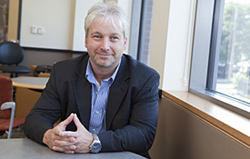Fast Food Restaurants Dish Up Unhealthy Marketing to Youth
Children as young as age 2 are seeing more fast food ads than ever before, and restaurants rarely offer parents the  healthy kids’ meal choices, according to a new study from Yale’s Rudd Center for Food Policy & Obesity. The new evaluation, the most comprehensive study of fast food nutrition and marketing ever conducted, shows that fast food marketers target children across a variety of media and in restaurants. In addition, the study finds that restaurants provide largely unhealthy defaults for the side dishes and drinks that come with kids’ meals. The detailed findings of this study will be presented in Denver today during the American Public Health Association’s annual meeting. (more…)
healthy kids’ meal choices, according to a new study from Yale’s Rudd Center for Food Policy & Obesity. The new evaluation, the most comprehensive study of fast food nutrition and marketing ever conducted, shows that fast food marketers target children across a variety of media and in restaurants. In addition, the study finds that restaurants provide largely unhealthy defaults for the side dishes and drinks that come with kids’ meals. The detailed findings of this study will be presented in Denver today during the American Public Health Association’s annual meeting. (more…)




